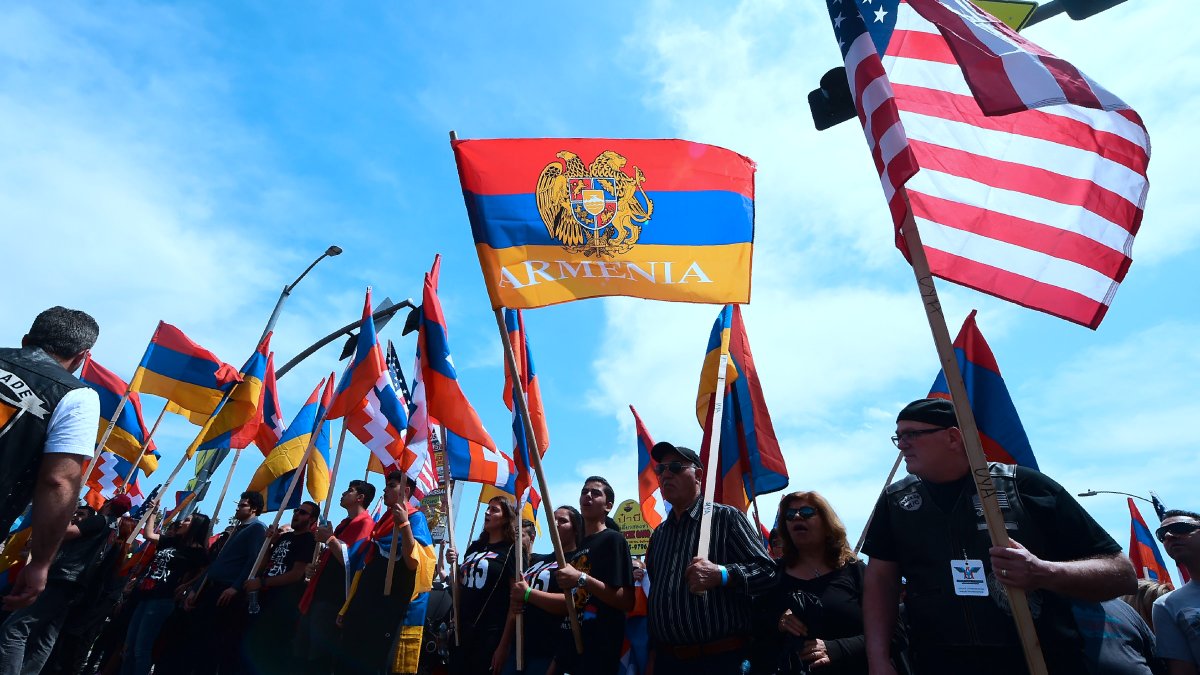Schools will be closed this Monday in the Los Angeles and Glendale Unified School Districts to mark Armenian Genocide Remembrance Day and there will be a rally in Little Armenia to mark the 108th anniversary of the start of the events that scholars consider to be the first genocide of the 20th. century.
The LAUSD Board of Education adopted a policy in 2020 to close schools on Armenian Genocide Remembrance Day.
Beginning with the 2013-2014 school year, students and teachers in the Glendale Unified School District enjoy a day off on April 24 for Armenian Genocide Remembrance Day.
The United States has formally recognized that the systematic murders and deportations of hundreds of thousands of Armenians by the forces of the Ottoman Empire in the early 20th century were “genocide”.
Governor Gavin Newsom signed into law a bill on September 29 establishing Genocide Remembrance Day as a public holiday to be observed on April 24 and allowing public schools and community colleges to close on the holiday.
“The commemoration of the genocide is more than a lesson in history. It is a powerful tool to engage people of all generations in the sanctity of human rights, the enormity of crimes and how to prevent future atrocities,” Newsom wrote in his signed message to AB 1801 by North Hollywood Assembly Democrat Adrian Nazarian. .
Los Angeles Area Events
The “Armenian Genocide Memorial Justice Rally” will begin at 10 a.m. at the intersection of Hollywood Boulevard and Western Avenue. It is organized by the United Armenian Youth, which also staged a protest on Sunday outside the Azerbaijani consulate in Brentwood calling for an immediate end to Azerbaijan’s blockade of the Lachin Corridor.
Glendale will host its 22nd annual Armenian Genocide Memorial Event at 7 p.m. at the Alex Theater, themed “The Armenian Experience Through the Lens,” celebrating the centennial of Armenian cinema.
The program will begin with a tribute to the victims of atrocities in the Nagorno-Karabakh region with the aim of raising awareness of humanitarian crises.
There are three communities that continue to form and mark the culture in Los Angeles, and that is that the metropolitan area is the second place in the world with more Mexicans, Salvadorans and Armenians, important communities that have made this city their second home.
It will also include a preview of Armenia’s submission for the Best International Film category of the 2024 Oscars, “Aurora’s Sunrise,” an animated documentary based on the life of Aurora Mardiganian, an Armenian Genocide survivor who, after her escape, became an actress in the United States. states.
The keynote will be delivered by actor Joe Manganiello, who will speak about intergenerational trauma, drawing on his family history and the story of his maternal great-grandmother, Terviz “Rose” Darakijan, who survived the Armenian Genocide, organizers said.
When did the Armenian Genocide take place?
On April 24, 1915, Ottoman authorities arrested intellectuals and community leaders Armenians in Constantinople, resulting in the deaths of approximately 1.5 million people.
Turkey denies the deaths constituted genocide, saying the death toll was inflated and those killed were victims of the civil war and riots.
Hundreds of people of Armenian origin took to the streets and in front of the Turkish embassy to demonstrate their displeasure on the occasion of the 106th anniversary of the massacre of Armenians.
“As we join nations around the world in remembering this painful history, we also reflect on the resilience and determination of the Armenian people,” President Joe Biden said in a statement on what the White House said. announced as Armenian Remembrance Day. “Many of those who survived were forced to start new lives in new lands, including the United States.
“Here and around the world, the Armenian people have faced the evil of hatred with hope. They rebuilt their communities. They raised their families and preserved their culture. They have strengthened our nation. They also told their stories, and those of their ancestors, to remember and ensure that a genocide like the one that happened 108 years ago would never happen again.”

